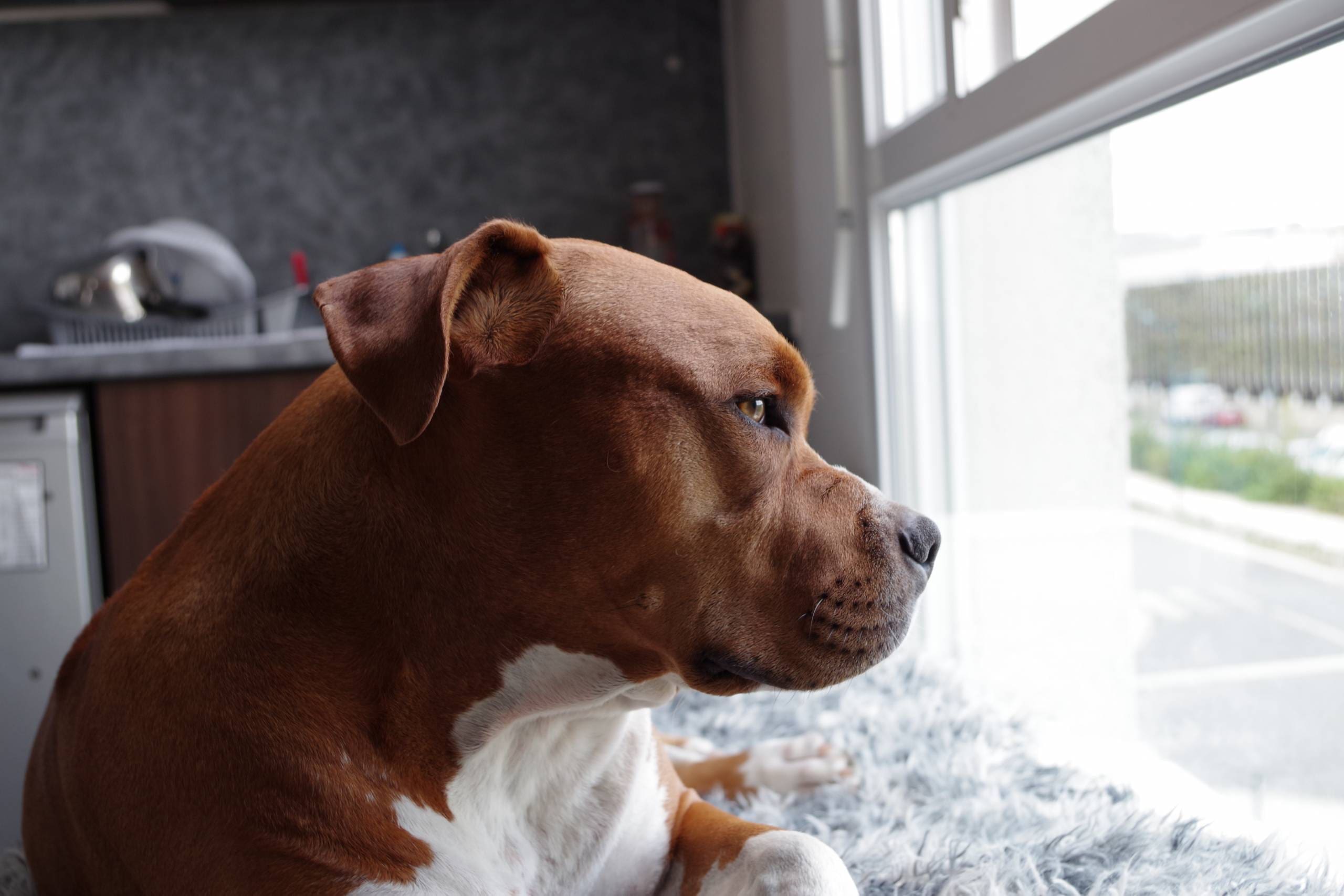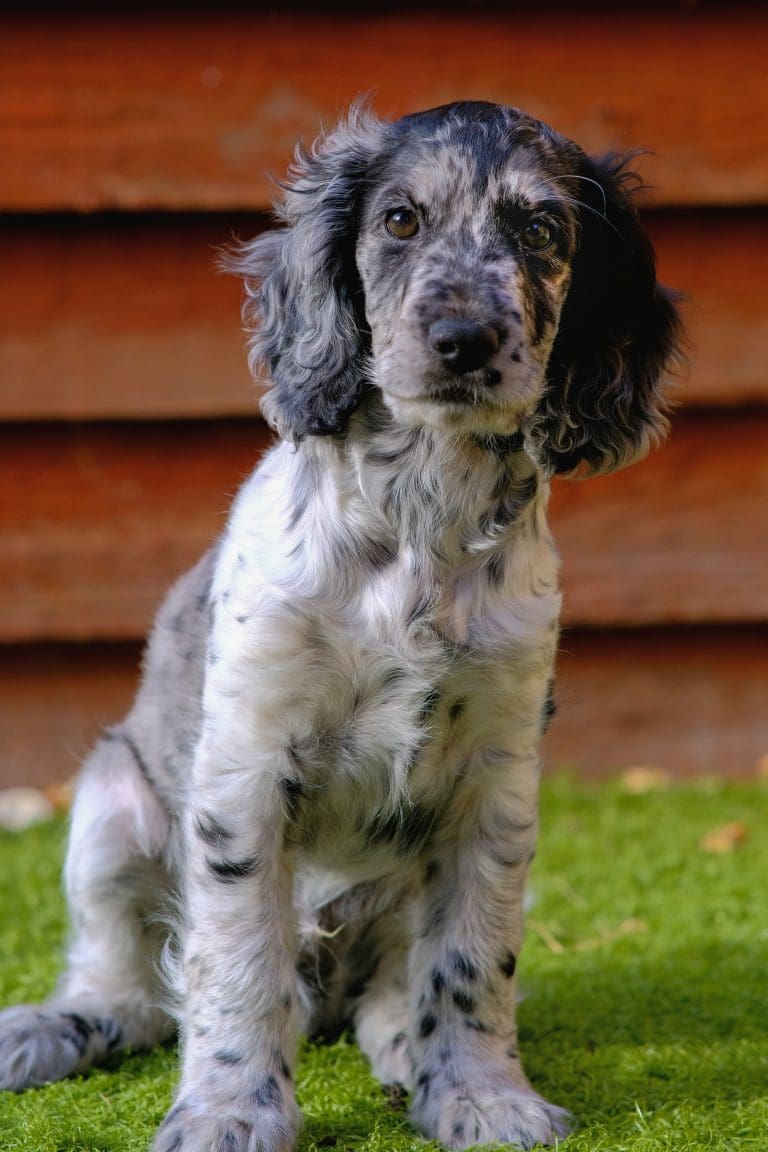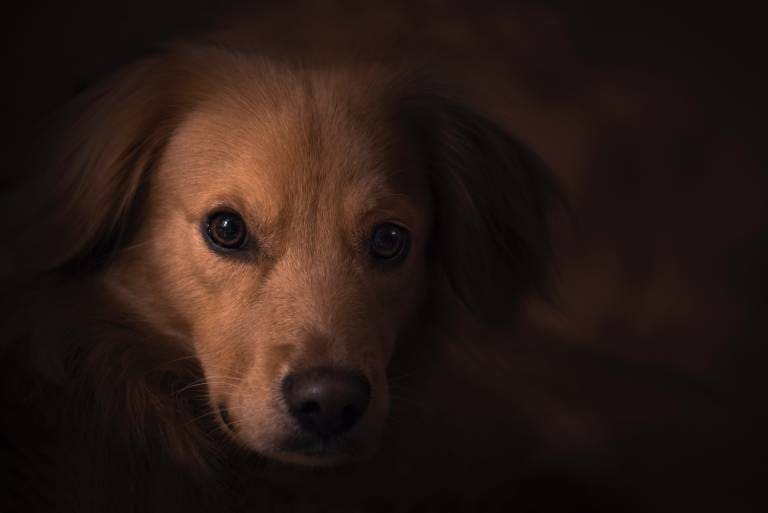What To Do If Your Dog Eats Ham?
Post Date:
December 10, 2024
(Date Last Modified: November 13, 2025)
If your dog manages to eat ham, a calm, stepwise assessment helps you decide whether immediate action or a professional call is needed.
Assess the situation quickly
Identify what type of ham was eaten, how much, and roughly when it happened. Note whether the meat was plain or had a glaze, rub, or stuffing that could contain onion, garlic, or artificial sweeteners; these additives change risk and recommended actions. Record the dog’s approximate weight and age and watch for any immediate symptoms such as drooling, gagging, trembling, weakness, or vomiting.
Note the time of ingestion carefully because some toxicants act very quickly; for example, if the ham contains xylitol, clinical hypoglycemia can begin within 30–60 minutes after ingestion[1].
Immediate safety steps
Stop further ingestion by removing remaining ham and securing the dog in a quiet, contained area so you can observe them safely. Keep any packaging, labels, or photos of the food and seasoning; this information can be crucial when you call your veterinarian or a poison-control service. Avoid inducing vomiting at home unless a veterinarian or poison-control professional gives you exact instructions and a safe protocol to follow.
Toxic ingredients and common hazards in ham
Ham itself may be high in salt and fat, and many commercial or holiday hams include glazes, rubs, or stuffing that add additional hazards such as onion, garlic, or artificial sweeteners. High salt intake can cause sodium toxicosis; significant clinical effects are reported after ingestion of large salt doses and should prompt a professional call when the ingested amount is substantial relative to body weight[2].
Onion, garlic, and related allium species can damage red blood cells and lead to hemolytic anemia; clinical signs of allium-induced hemolysis often take a few days to appear, commonly developing over 2–5 days after exposure[3].
Glazes, rubs, and ready-made sauces sometimes contain xylitol, nitrates/nitrites, or other preservatives; if a glaze or sauce contains xylitol, the hypoglycemic and hepatic effects can be fast and severe, and you should treat it as an emergency[1].
Fatty food and pancreatitis risk
Fatty meals and rich table scraps are a common trigger for pancreatitis in dogs. Clinical signs such as vomiting, abdominal pain, severe lethargy, and diarrhea are typical, and they often appear within 24–72 hours after ingestion of a high-fat meal[3]. Because pancreatitis can be serious and sometimes progress quickly, seek veterinary attention if a dog becomes persistently nauseated, painful, or refuses to eat.
If you notice severe abdominal pain, fever, persistent vomiting, or signs of shock, these are thresholds for urgent veterinary assessment rather than home observation.
Bones and mechanical hazards
Cooked ham bones are brittle and can splinter; splinters can lodge in the oropharynx, esophagus, stomach, or intestines and may cause choking, penetration, or obstruction. Perforation or obstruction after ingesting a sharp bone can become apparent within 24–48 hours with signs such as severe abdominal pain, repeated vomiting, bloody stool, or collapse[4].
If the dog is coughing, pawing at the mouth, having difficulty breathing, or showing signs of distress from a suspected airway blockage, go to an emergency clinic immediately. For suspected gastrointestinal perforation or obstruction, veterinary imaging and possibly surgical intervention are commonly required.
Home first aid: safe interventions and common things to avoid
If the dog is stable, keep them calm, prevent further access to the ham, and collect packaging or photos to share with your veterinary contact. Only induce vomiting when a licensed veterinarian or a poison-control center gives clear, case-specific instructions; inappropriate emesis can raise the risk of aspiration or worsen injuries from sharp bone fragments.
Avoid administering human medications such as pain relievers, antacids, or anti-diarrheal preparations without veterinary approval, as many human drugs are toxic to dogs. Discuss activated charcoal with a professional before use; charcoal may be appropriate for some toxin exposures but is not universally indicated and must be dosed correctly under guidance.
When to call your veterinarian or poison-control center
Contact your veterinarian or a pet poison-control service for any ingestion of seasoned or glazed ham, unknown additives, large quantities, cooked bones, or if the dog shows severe symptoms such as collapse, seizures, severe vomiting, or bloody stool. Be ready to provide the dog’s weight, the approximate time and amount eaten, photos of the food and packaging, and any immediate signs you observed.
If the ham contained a known toxin or if you suspect xylitol or a large salt load, call immediately because some effects are time-sensitive and require rapid intervention; poison-control services can provide step-by-step recommendations.
| Ingredient/hazard | Primary risk | Typical onset | Immediate action |
|---|---|---|---|
| Xylitol (in some glazes) | Hypoglycemia, liver injury | 30–60 minutes[1] | Call vet/poison control immediately |
| High salt | Salt toxicosis, dehydration | Hours after large ingestion[2] | Call for guidance; fluids may be needed |
| Onion/garlic (allium) | Hemolytic anemia | 2–5 days[3] | Monitor; seek vet if lethargy or pale gums |
| Cooked bones | Splintering, obstruction, perforation | 24–48 hours for complications[4] | Seek immediate vet care for severe signs |
What to expect at the clinic: diagnostics and treatment options
On presentation the veterinarian will perform a focused physical examination and decide on diagnostics based on history and signs. If a foreign body or bone is suspected, abdominal X-rays or ultrasound are commonly used to evaluate for obstruction or perforation. Bloodwork including a complete blood count and chemistry panel helps assess dehydration, electrolyte status, pancreatic enzymes, and organ function.
Decontamination via induced emesis is used selectively and only when safe; if a dog is vomiting, lethargic, or if sharp bones are involved, emesis is usually avoided. Intravenous fluids and antiemetic medications are common treatments; when IV fluid therapy is indicated, typical maintenance and replacement rates in symptomatic dogs often fall in the range of about 60–90 mL/kg/day depending on deficits and ongoing losses[3]. Pain control, anti-nausea medications, and supportive care are provided as needed, and surgery may be required for obstructing or perforating bone fragments.
Monitoring at home after the incident
After the initial assessment, watch closely for vomiting, diarrhea, worsening lethargy, abdominal pain, pale gums, or changes in drinking and urination. Many acute signs from a toxic or fatty meal appear within 24–72 hours, so this period is critical for observation[5]. Continue to monitor for up to seven days for delayed complications such as anemia from allium exposure or evolving pancreatitis, and re-contact your veterinarian if new or worsening signs develop.
Prevention: safe storage, feeding habits, and training
- Keep leftovers, garbage, and counters secured and out of reach by using closed containers, high shelves, or pet-proof trash cans.
- Avoid feeding table scraps and train impulse-control cues such as “leave it” so the dog learns not to take food left on plates or countertops.
- Remove bones and seasoned meats from accessible areas and establish consistent waste management so accidental access becomes unlikely.
Keep detailed notes on timing and symptoms and be prepared to communicate them clearly when you call for professional advice.
Practical timelines and expected clinic decisions
Many clinical actions hinge on timing: emesis to remove recently ingested food or toxin is generally considered effective only within about 2 hours of ingestion for non‑caustic, non‑sharp items, and a poison-control specialist or veterinarian will use that window to advise whether inducing vomiting is appropriate[1]. If a dog is already vomiting, lethargic, seizuring, or has ingested sharp bones, clinicians typically avoid emesis and instead opt for imaging and supportive care.
When pancreatitis is suspected, veterinarians commonly observe onset of clinical signs within a 24–72 hour window after a high‑fat meal and will often recommend bloodwork and abdominal imaging during that interval to confirm diagnosis and assess severity[3]. For potential hemolytic anemia from allium exposure, clinicians expect changes in red‑cell parameters to evolve over days rather than hours and will often recheck bloodwork 48–72 hours after a significant exposure[3].
Common questions to ask when you call
Be ready with concise facts: your dog’s weight in pounds, the approximate time of ingestion, the estimated amount and type of ham (plain, glazed, bone present), and any immediate signs. Ask whether the product ingredient list includes xylitol/other sweeteners, onion/garlic, or high salt content, and whether immediate clinic evaluation is recommended. If the triage recommends home observation, confirm specific signs that should prompt an urgent recheck and the recommended observation timeframe.
Safe dosing and use of decontamination agents under guidance
Activated charcoal is sometimes used to reduce systemic absorption of certain toxins; dosing protocols vary by situation, but one commonly cited single dose used under veterinary supervision is approximately 1 g/kg orally, with repeat dosing and appropriateness determined by the toxin, timing, and clinical status[3]. Because charcoal is contraindicated in cases where the patient is vomiting, obtunded, or where a caustic or sharp object is suspected in the GI tract, always consult a professional before administering charcoal.
IV fluid therapy is frequently part of hospital care for dehydration, salt toxicosis, or pancreatitis; maintenance and replacement fluid needs are individualized, but clinicians commonly plan fluid rates and adjustments using weight-based calculations and repeat assessments of hydration and electrolytes[3]. Monitor for changes in gum color and capillary refill time—reduced perfusion such as a capillary refill time greater than about 2 seconds can indicate circulatory compromise and requires prompt veterinary reassessment[4].
How poison-control services triage and assist
Phone triage by a poison-control center or veterinary emergency service focuses on three things: the suspected toxin and ingredients, the amount relative to the dog’s weight, and the dog’s current clinical signs. They will recommend immediate steps (for example, go to an ER now) or watch-and-wait with specific instructions and timelines. These services maintain databases and protocols that help determine whether home care, outpatient evaluation, or emergency hospitalization is most appropriate[1].
Recovery diet and short-term care after an uneventful visit
If your dog is evaluated and released from the clinic without the need for prolonged hospitalization, veterinarians commonly advise a brief period of bland, low‑fat feeding and small, frequent meals as appetite returns. Reintroduction of the regular diet is often gradual over 48–72 hours depending on clinical recovery; watch for recurrent vomiting, appetite loss, or abdominal pain during that refeeding period and seek reassessment if these occur[5].
For minor exposures that do not require aggressive treatment, many clinicians recommend a specific recheck or phone update within 24–48 hours so that any delayed signs—such as developing anemia after allium ingestion or worsening abdominal signs consistent with pancreatitis—can be identified and managed promptly[2].
Recordkeeping and follow-up tips
Keep a short incident log with the dog’s weight, time and estimated amount consumed, photos of packaging, and a timeline of symptoms; this record speeds triage and improves the accuracy of follow-up assessments. If laboratory monitoring is recommended, note baseline results and the timing for reassessment—clinics often suggest rechecks at 24–72 hours for biochemical trends relevant to pancreatitis, electrolyte disturbances, or developing hemolysis[3].
Key takeaways for owners (practical next steps)
If a dog eats ham, secure remaining food and packaging, observe the dog closely, and call your veterinarian or a pet poison-control service with the dog’s weight, the time and amount eaten, and photos of the product. Follow professional instructions about whether to bring the dog in immediately, attempt home observation, or take other steps such as withholding food temporarily. Early, accurate information and timely calls are often the difference between simple monitoring and the need for urgent intervention[1].
Sources
- petpoisonhelpline.com — Pet Poison Helpline.
- aspca.org — ASPCA Animal Poison Control.
- merckvetmanual.com — Merck Veterinary Manual.
- avma.org — American Veterinary Medical Association.
- vcahospitals.com — VCA Hospitals.






